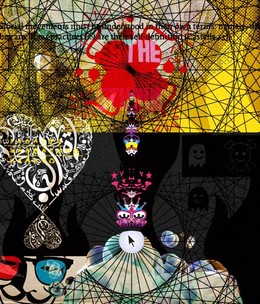Mirko Tobias Schäfer / Assistant Professor
University of Utrecht Department for Media and Culture Studies
Mirko Tobias Schäfer / Assistant Professor
University of Utrecht Department for Media and Culture Studies
The pervasive availability of means for creating media content shaped an understanding of social interaction, cultural production and political activism as a distinctive participatory culture. Promoted as a most revolutionary change of relations between consumers and producers, citizens and governors, this phenomenon situated new media as enabling technologies in the public discourse. While the mainstream media published a torrent of celebrating comments, praising the user as the hero of the information age, scholars went to work to analyse media practices, technology and cultural production. Other scholars who were too easily seduced by the tempting spirit of media-facilitated social change, tried to confirm the tale of the emancipated users by producing catchy metaphors to label phenomena of media practice we have not yet analysed sufficiently, let alone understood. The discourse focused too much on the alleged emancipatory potential of technology and announced hastily a change of power relations in media production.
Deconstructing media myths is as much a core aspect of an education at Utrecht's New Media and Digital Culture programme as it is to develop a pragmatic approach to analysing and theorizing media practices. Taking the 'materialistic' aspects of a global network culture in late capitalism into consideration, students develop a hands-on understanding of media cultures. The course Participatory Culture and New Media revisits scholarly accounts to participation through analysing actual media practices concerning their various degrees of user participation, the distribution of power, the different forms of social interaction and the media representation and the actual cultural production.
This edition of the Newmediastudies.nl magazine features a collection of brief articles discussing some of the topics students dealt with in their research projects: The media representation of Anonymous shaped an understanding of a tightly organized 'hacker' collective with exceedingly sophisticated skills in organization and technology manipulation. A deconstruction of this claim becomes possible through critically revisiting media claims and mapping various aspects that constitute the image of Anonymous, such as infrastructure, anonymity, and communication practices. In times of tight budget cuts, crowdfunding sounds like the wet dream of a neo-liberal policy maker to outsource cultural responsibility to the imaginary free market economy. A group of students had a close look upon Dutch crowdfunding projects in order to analyse their role in cultural production and the criteria for successful crowdfunding. The recent events in the middle east constituted a heated debate whether social media bring social change. Unfolding mostly on Twitter the debate quickly distinguished techno-optimists and techno-sceptics. A group of students analysed the debate and identified the rather neglected balanced voices that provide a much more accurate view upon the role of technology in the middle east. The role of hacker collectives in participating in society-wide debates and their active contribution to technological change and legal debate is illustrated in an exploratory analysis of various controversial hacks and the related debates. The role of amateurs and commercial platform providers is revisited in projects on the cooking community Smulweb.nl and the photo sharing community Zoom.nl. These projects show how easily commercial interests and community driven media production can converge.
All research projects show that the participatory culture is actually a dynamic and highly intertwined interaction of various stake holders and participants. Driven by diverse motivations, situated in different social contexts, the participants use a wide range of technologies and social practices. The online participatory culture is not as heroic and homogeneously user driven as the rosy fairy tales suggest, but diverse and complex as social life itself, where very different stakeholders, various motivations, and different practices interact.
Date April 2011 Category News

The recent edition of the Newmediastudies.nl magazine features a collection of brief articles discussing some of the topics students dealt with in their research projects about new media and participatory culture. All projects were interested in aspects of user participation and convergence.